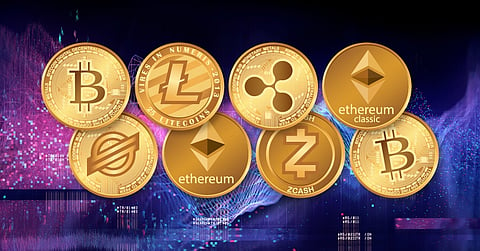Cryptocurrency: What Is It After All?
Money as we know it today:
Fiat Money: 164 official national currencies across 197 independent countries + 60 dependent territories. The US dollar is the most-traded currency with a 47% share in global payments and 87% of the forex market’s daily turnover. The Euro has a 33% share of the daily forex transactions and 28% share in global bank payments.
Cryptocurrency: Over 2000 cryptocurrencies backed by small communities of investors and backers. There are 50 million wallet users across the world. First released in 2009, as a software for public use also called “open-source”, a group of people/person who identified themselves/himself as Satoshi Nakamoto, created (technically called miners/block-makers) the Bitcoin.
Its genesis was a peer-to-peer electronic cash system which could be exchanged for products and services on the internet. It was given as reward to miners/block-makers for their computational expertise and mathematical prowess.
Its use as cryptocurrency is a secondary organic evolution. Not limited to Bitcoin, today, cryptocurrency can be stored in digital wallets and exchanged for fiat money, at a cost. With 50 million users across the globe it is an established alternative currency and is being used extensively for decentralized exchange and transactions for goods and services and is fast catching up as an alternative “type” of investment.
Cryptocurrency itself is not stored, the keys or password needed to make the payments are stored in “digital wallets” which are apps that manage these addresses, keys, balance and payments.
When buying, there are many cryptocurrencies to choose from on the net. Your choice may be based on the specific currency you want to buy, its availability in your country, its cost, exchange fee cost, payment methods suitable to you-credit cards, bank transfers or Cash.
The compatibility of the wallet in case you already have an account etc. Needless to say, your fiat money wealth and risk appetite will be a driving force, as a hobbyist or investor or someone from the community of backers.
Advantages of cryptocurrency over digital transactions of fiat money:
• It is available at a click of a button, enabling faster settlements, across the world.
• Transfer cost across borders is much lower, as cryptocurrency transactions avoid complicated costs such as payment processor fees and exchange rate charges.
• Altcoins (cryptocurrencies other than the original Bitcoins) evolved to maintain privacy, protecting the identity of the people in a transaction.
• It uses cryptography technology to process, secure and verify transactions, making it secure.
• A cryptocurrency transaction is an entry in a blockchain, that uses digital ledger technology, which is difficult, if not near impossible to manipulate.
• It is not controlled by a central authority such as a bank.
• Transparency is enabled because all transactions are seen on every participating computer on the network, along with public keys of both senders and recipients.
Disadvantages of Cryptocurrency:
• Cryptocurrencies are difficult to understand, and therefore use.
• Once made, a transaction cannot be changed or reversed.
• If a wrong a transaction is made the only thing one can do is ask for a reversal from the recipient, who may or may not agree to refund the transaction.
• Bitcoins value has crashed 75% four times since 2010, making it unpredictable, and risky to work with.
• Exchange of cryptocurrency for fiat money or the other way around is neither easy nor cheap.
• A Bitcoin transaction was actually hacked once, way back in 2010.
Like individuals, government attitudes toward cryptocurrencies vary. Some countries are global advocates, others ban its use. Japan is a disrupter and has since April 2017 accepted cryptocurrency as a legal tender. Bangladesh has put it under the anti-money-laundering law. India for its part has lifted a two-year ban on March 4, 2020, and is looking for ways to regulate it.
(The author is a Lucknow-based Technology Expert. Views expressed are personal)

